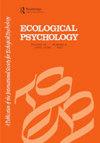1966 and All That: James Gibson and Bottom-Down Theory
IF 1.7
3区 心理学
Q3 PSYCHOLOGY, EXPERIMENTAL
引用次数: 8
Abstract
ABSTRACT The “later” James Gibson is widely misrepresented as an extreme stimulus–response theorist. In fact, Gibson's 1966 book presents a radical alternative to stimulus–response theory. “Perceptual systems” are not passive and receptive but “organs of active attention” (1966/1968, p. 58). Perceivers “reach out” into the world. This commentary examines some of the implications of Gibson's systems-cum-functionalist-cum-ecological approach, including the relations between the senses; the concept of “sensationless” perception; and most fundamentally, the nature of perceptual systems as extending beyond the body. I conclude that an adequate understanding of perception cannot be limited to the already severely limited domain of psychology. If Gibson is right, “ecological psychology” is a contradiction in terms.1966年及其后:詹姆斯·吉布森与自下而上理论
“后来的”詹姆斯·吉布森被广泛误解为一个极端的刺激-反应理论家。事实上,吉布森1966年的书提出了刺激-反应理论的一个激进的替代方案。“感知系统”不是被动的和接受的,而是“主动注意的器官”(1966/1968,第58页)。感知者“伸向”世界。这篇评论考察了吉布森的系统-功能-生态方法的一些含义,包括感官之间的关系;“无感觉”知觉的概念;最根本的是,感知系统的本质延伸到身体之外。我的结论是,对知觉的充分理解不能局限于已经非常有限的心理学领域。如果吉布森是对的,那么“生态心理学”在术语上就是矛盾的。
本文章由计算机程序翻译,如有差异,请以英文原文为准。
求助全文
约1分钟内获得全文
求助全文
来源期刊

Ecological Psychology
PSYCHOLOGY, EXPERIMENTAL-
CiteScore
3.30
自引率
10.50%
发文量
8
期刊介绍:
This unique journal publishes original articles that contribute to the understanding of psychological and behavioral processes as they occur within the ecological constraints of animal-environment systems. It focuses on problems of perception, action, cognition, communication, learning, development, and evolution in all species, to the extent that those problems derive from a consideration of whole animal-environment systems, rather than animals or their environments in isolation from each other. Significant contributions may come from such diverse fields as human experimental psychology, developmental/social psychology, animal behavior, human factors, fine arts, communication, computer science, philosophy, physical education and therapy, speech and hearing, and vision research.
 求助内容:
求助内容: 应助结果提醒方式:
应助结果提醒方式:


